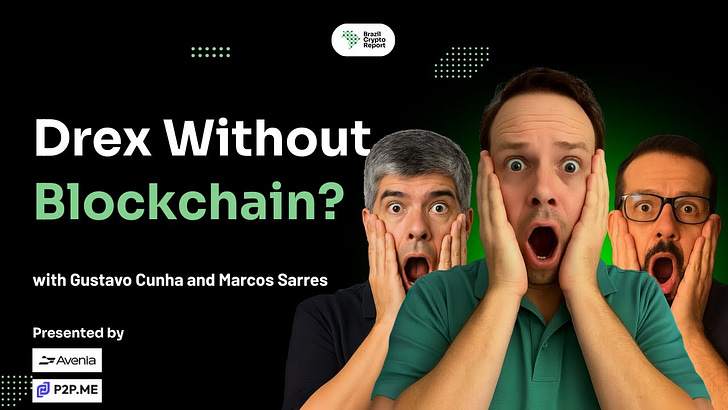Podcast Episode Details
Back to Podcast Episodes
Episode #162: Drex Without Blockchain? Exploring the Road Ahead with Gustavo Cunha and Marcos Sarres
🙌 You can listen to BCR on your favorite podcast platform YouTube | Spotify | Apple Podcasts
🔥 Join the BCR English language Telegram group to continue the conversation
Olá pessoal!
Brazil’s Central Bank shook the market earlier this month by announcing that it remove the blockchain component of the Drex project (at least in the short term). The project will now pivot to focus on unlocking collateral via lien reconciliation using a non-blockchain solution.
The Drex project has been the driver of much of the blockchain activity in the country over the last couple years. So what does this pivot mean: is it a rug pull? or a moment for the private sector to take the lead and continue generating momentum?
To discuss, I am joined by Gustavo Cunha, CEO of Fintrender and a former Brazilian banking executive, and Marcos Sarres, CEO of GoLedger - a firm specializing in blockchain development on Hyperledger.
Both Gustavo and Marcos have been following the Drex project in different capacities since its initiation in 2021, and offer valuable perspective on why blockchain did not work out as planned for Drex (at least not yet), and the road ahead for blockchain in Brazil without Drex as the driving force.
Brazil Crypto Report is a media partner of Stablecoin Conference 2025, hosted by Bitso Business on August 27-28 in Mexico City
Motives Behind the Pivot
The core reasons for pulling the plug on blockchain here are multi-faceted, but ultimately boiled down to technical constraints. Specifically:
* Ethereum's inherent transparency conflicted with unique multi-bank privacy requirements. Banks in the Drex network required transaction isolation while maintaining Central Bank supervisory visibility
* Privacy preserving technologies like zero-knowledge proofs and homomorphic encryption solutions have extended development timelines and are not yet ready for the scale of a project like Drex
* Collaborative efforts by Microsoft, Parfin, and other major players to solve this problem ultimately proved too time-intensive
Gustavo notes that the pivot decision was also in part to some other factors:
* The United States' movement toward regulated private stablecoins and away from centralized CBDCs
* Leadership changes at the Central Bank (Drex champion Roberto Campos Neto is out as president)
* The recent Pix security incident at the Central Bank, necessitating increased focus on cybersecurity
A Net Positive?
While the pivot decision may feel like a rug pull, Drex has advanced the blockchain and tokenization space in Brazil in many ways. Consider:
* Major financial institutions developed internal blockchain teams (20-30 specialists each)
* Multiple tokenization projects are now in development across carbon credits, loans, and collateral
* The private sector gained substantial blockchain expertise through Drex participation
* Market readiness for tokenized asset infrastructure significantly improved
Still, the vacuum created by the Central Bank's withdrawal presents both challenges and opportunities. Gustavo and Marcos suggest the most likely
Published on 4 months, 1 week ago